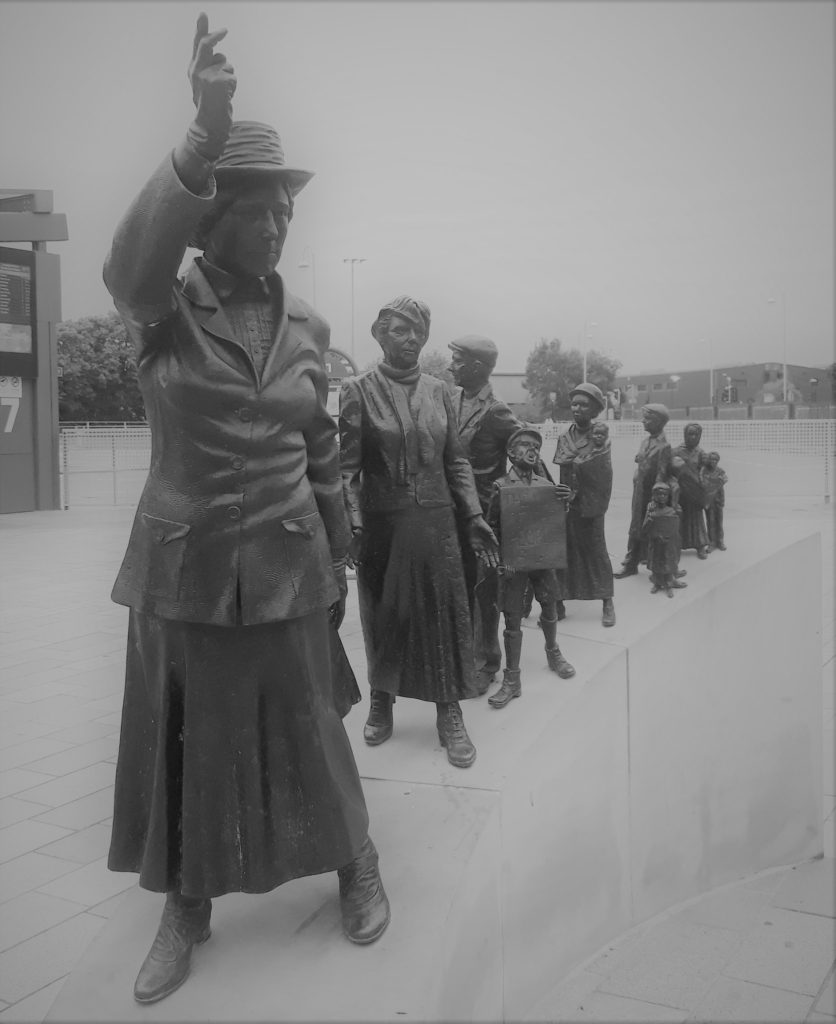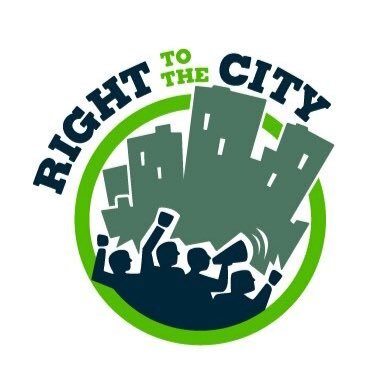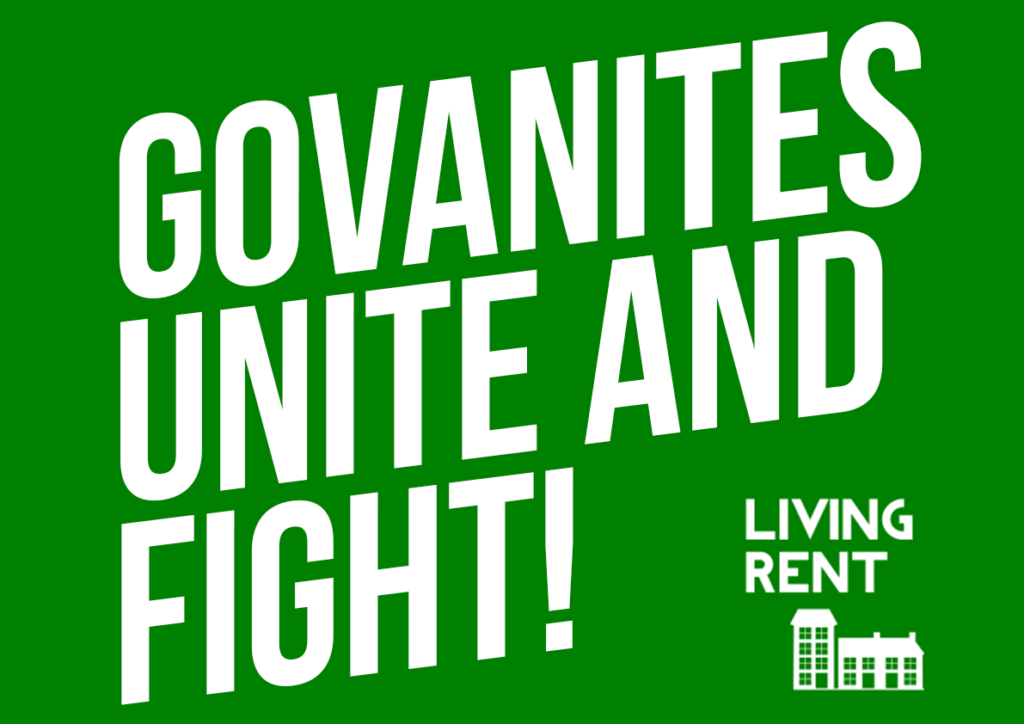Community Responses and Radical Resistance in Govan
In anticipation of the imminent evictions of 300 of Serco’s asylum seeker tenants in Glasgow, 3 events were held across the city in Springburn, Maryhill and Govan. An Erasmus delegate attended the Govan event, held in the Pearce Institute.
Background
Serco, a FTSE top 250 company, won the Home Office contract in 2012 to house asylum seekers while their claims were being assessed. This multinational, which manages over 500 contracts worldwide, and operates in the UK & Europe, North America, Asia Pacific and the Middle East lost the recent contract to the Mears Group who will commence responsibilities for asylum seeker accommodation in September 2019. In the meantime, Serco have stated that they will be evicting 300 of their Glasgow tenants who they claim have ‘failed’ in their attempts to be granted asylum in the UK. Originally set for the summer of 2018, these evictions have been postponed due to a range of legal challenges and political pressures from a broad section of the community. Serco have stated that they will begin the process in July of 2019, carrying out 30 lock-changes a week.
The Legal Response
A collective incorporating Govan Law Centre, Shelter, and Legal Services Agency have stated that they will act on every single termination notice and seek to prevent every single eviction from taking place on the grounds that these actions are unlawful in Scotland. These legal firms are supported by other rights based organisations such as Positive Action in Housing, the Scottish Refugee Council and Unity.
Scotland’s arcane housing legislation is complex and difficult to understand. In basic terms, landlords seeking to evict their tenants must follow a very specific set of procedures in order to terminate the tenancy. Once these notices to quit have been adequately served and contain all the relevant information prescribed by law, the landlord has to issue a 40-day notice, seek a decree for eviction in the Sheriff Court and have this decree served by a Sheriff Officer. Failure to meet these statutory requirements is a criminal offence. If this all sounds rather medieval it may or may not come as a surprise to find that these basic prescriptions have existed in legislative form in Scotland since 1555.
The Immigration Act 2014, muddies the legal waters here as it makes it an offence to let a property to tenants who do not have leave to remain. As a central pillar of Theresa May’s ‘Hostile Environment’ policy, the Immigration Act 2016, which has not been implemented in Scotland (yet) extends the penalty to five years in prison for landlords failing in their duty in accordance with the Right to Rent section of the Act. Govan Law Centre challenged the lock-changes on the grounds that they are ‘summary evictions’ which are unlawful in Scottish housing law, but this was rejected by Lord Tyre in April. The appeal is set to be heard in August 2019.
Not only are summary evictions in Scotland unlawful, it is also unlawful for children to be homeless under the prescriptions of the children (Scotland) Act 1995. Although more research is required in order to gain a clearer picture of who is affected, it seems that Serco are evicting households without children in order to avoid a situation where the local authority would have the stark choice of accommodating the entire family or taking the children into care.
The Event
Held in the Govan’s Pearce Institute, a large number of local asylum seekers and refugee women were able to attend the event as there was excellent creche facilities for their children.
The session was split into two hour-long sections. Expertly chaired by Smina Akhtar, the first part involved a number of speakers from a range of stakeholder organisations and support groups giving brief talks on their role in preventing the evictions from taking place.
The speakers included George from Living Rent, who gave an overview of the problem and outlined what direct-action events Living Rent were carrying out in order to put direct pressure on Serco. He also explained that the Mears Group who were taking over the contract had told them they were under contractual obligation NOT to rehouse those who would be evicted by Serco. George recommended that direct action be continued in order to impact adversely upon the reputational and financial interests of both Serco and Mears in forcing them to listen and to take notice of the campaign’s objectives.

Michael Collins from Right to Remain spoke next. He gave a comparison between Glasgow and his own area of activism, which included Yorkshire and Lancashire. Michael pointed out that in his experience of dealing with the rights of asylum seekers, the only evictions he had ever seen being successfully stopped were in Glasgow. This was attributed to both the legislative differences between Scotland and England as well as the ferocity with which local communities and activists defended the rights of the asylum seekers living there.

Roza Salih spoke next on behalf of Chris Stephens MP. Chris was hoping to attend the meeting in person but had an important vote in Parliament so could not make it. He did, however, bring the matter to the attention of the Parliament that day, urging immediate action to stop the evictions and support the asylum seekers affected. Chris has always given his unequivocal support to the asylum seekers in Govan and wanted it to be known that when it came to illegal evictions, those responsible had picked on the ‘wrong city’!

Other questions and contributions came from the No Evictions Network and Fight Fascism Fight Imperialism. Someone from Living Rent pointed out that Serco had received a £15 Million bail-out from the Government to cover the costs of ‘rent increases’ within the city. Ironic, given that impoverished households get evicted, while Serco gets bailed out.
After a short break the large room was divided into three groups in order to formulate our strategic plans regarding future direct action events for going forward. One group discussed a public relations strategy and another agreed to hold an information sharing stall outside of the Job Centre in Govan the flowing Wednesday, 24th July. Our group discussed what we called a Festival of Resistance. The aims of this action were to increase the visibility of the campaign and its effects, impact upon those who were responsible for the evictions, and recruit supporters and future members. The event would be a Festival rather than a protest and would involve a stall with information, snacks and refreshments, local cultural activities including a performance from Musicians in Exile, a local band from Govan made up exclusively of refuges and asylum seekers. The details would be agreed at the next meeting in a fortnight’s time.
The reality of events unfolding and evictions being carried out immanently was acknowledged and strategies for reacting to sudden evictions were discussed.
This event was an enormous success. It was inspiring to see both the local community and the community’s asylum and refugee population working together to prevent these horrendous evictions from taking place in their city.

This is what a ‘right to the city’ looks like. This vibrant and effective social movement in Glasgow is testimony to the power of community in making our cities places for everyone. Communities like Govan have a long and rich history of fighting housing injustice, from the rent strikes of 1915 lead by Govan’s own Mary Barbour, to the fight against stock transfer and the bedroom tax more recently. Places like Govan, Springburn and Maryhill serve as a beacon of hope in the fight against racism and oppression. Westminster’s determination to create a ‘hostile environment’ for immigrants hasn’t travelled well on its journey north. The collective efforts of so many groups, organisations, and communities to prevent the evictions and deportations of asylum seekers is testimony to the fact that refugees are always welcome in Glasgow.







